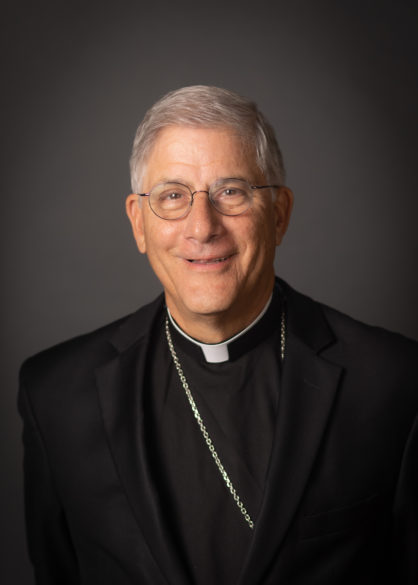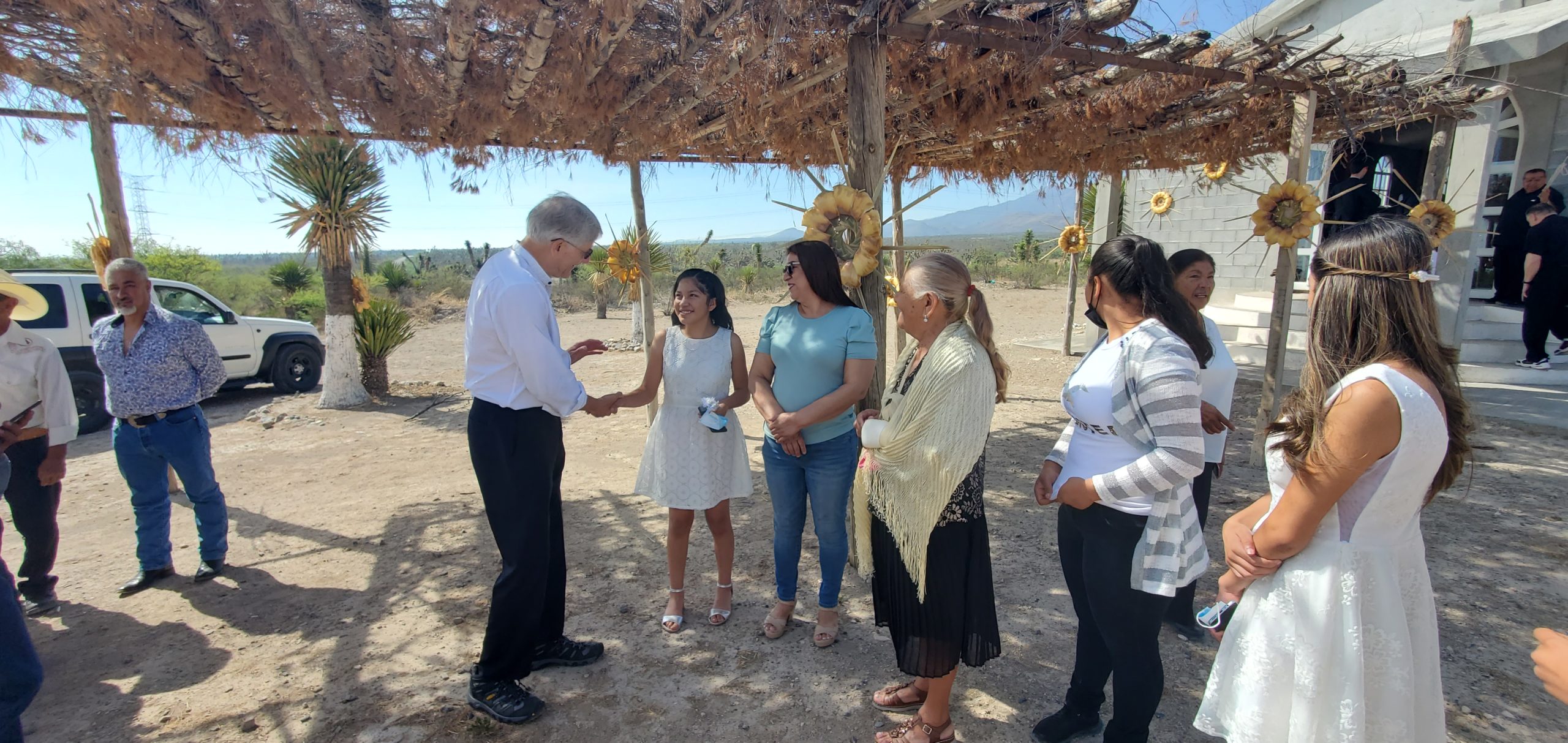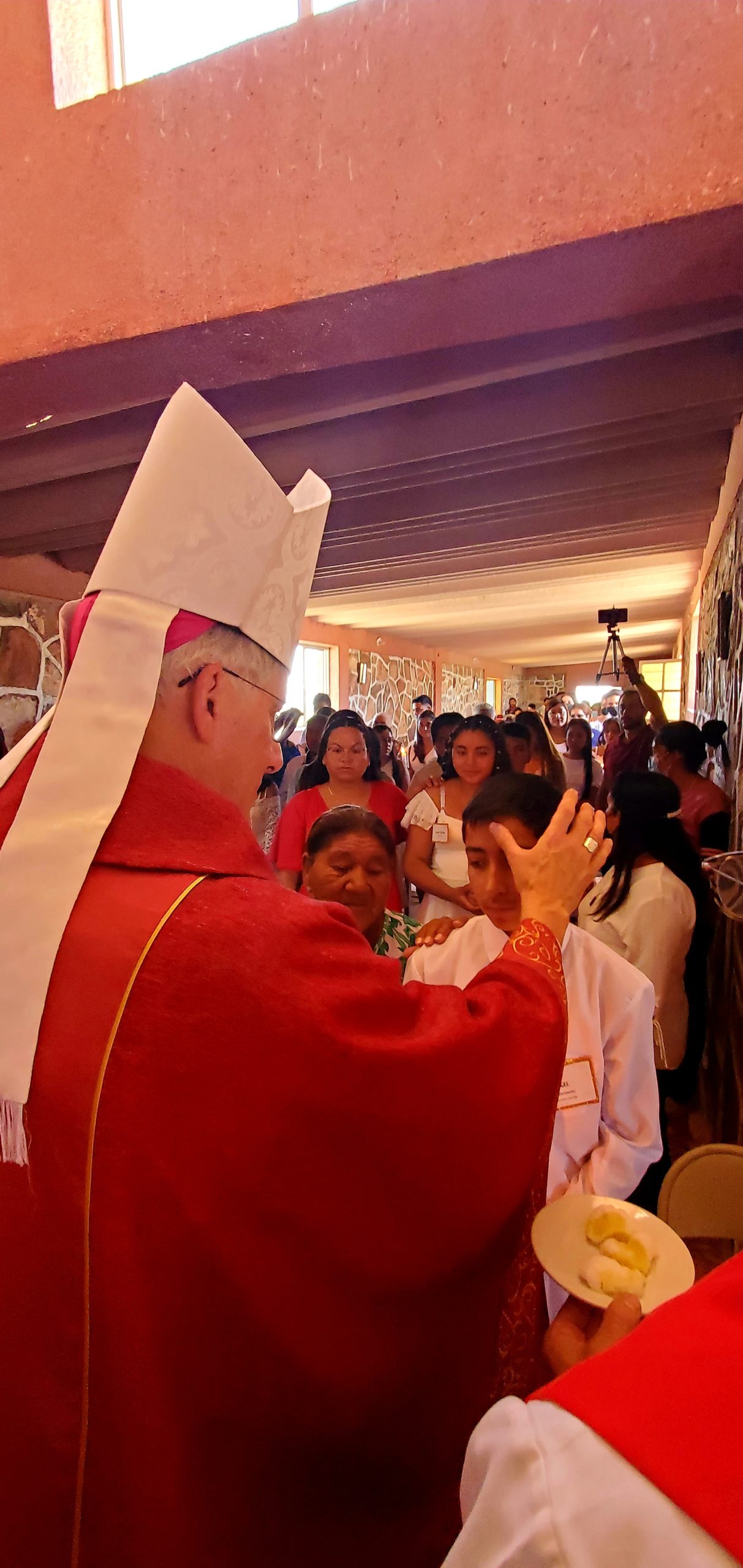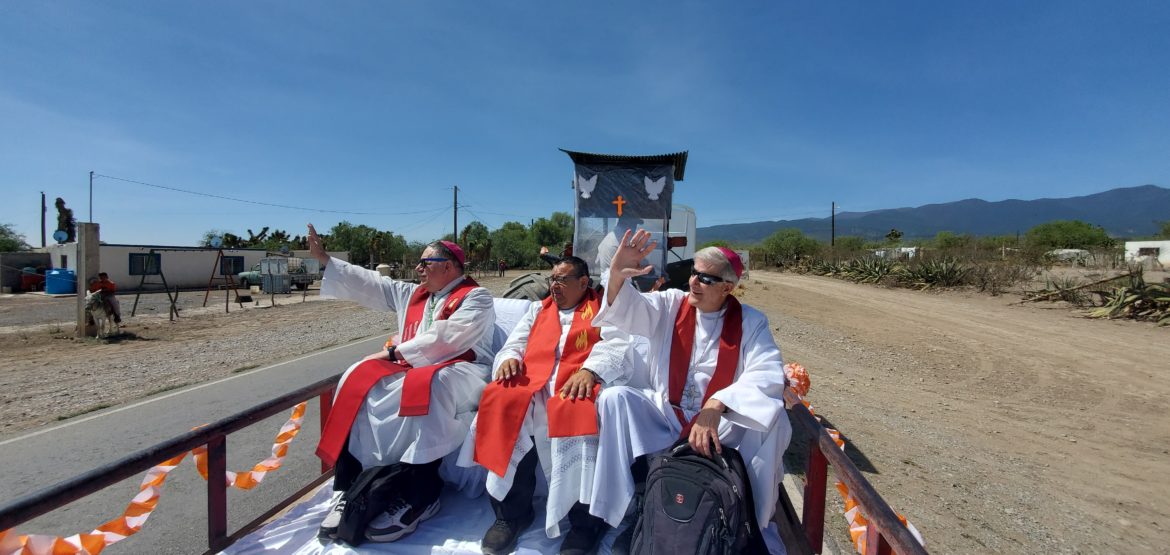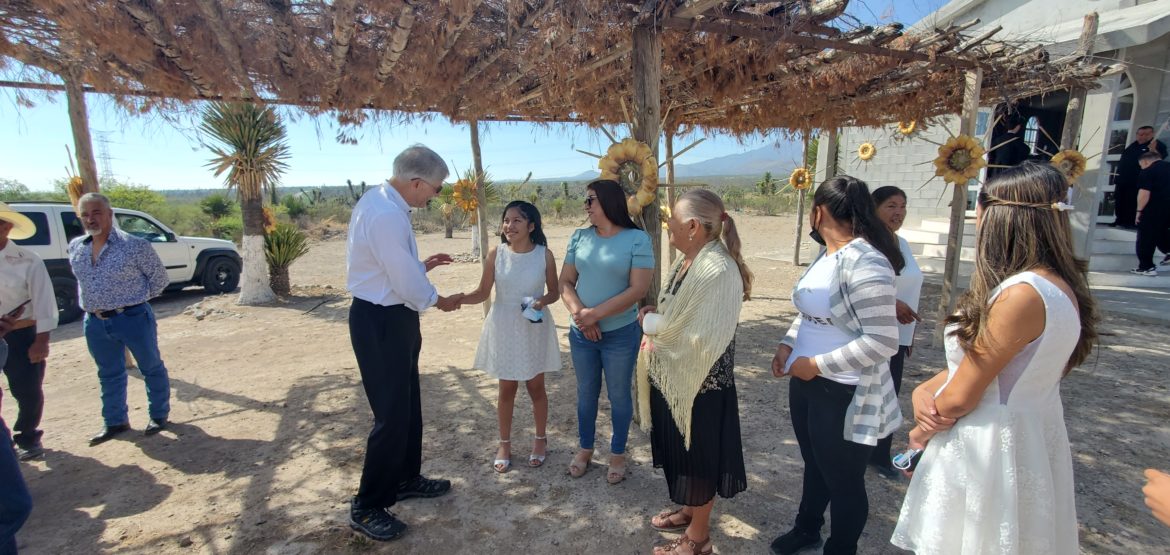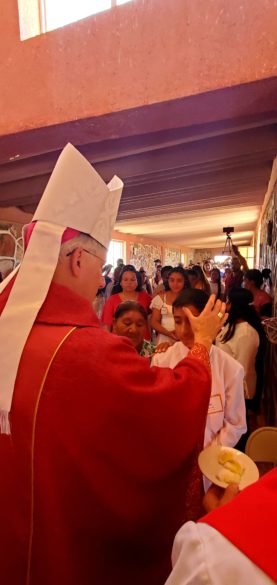Editor’s note: Below is the homily Bishop Kopacz delivered at the Red Mass celebrated on Sept. 11, 2022, at St. John, Oxford.
By Bishop Joseph R. Kopacz, D.D.
After the Israelites escaped from the Egyptians through the Red Sea, they quickly realized that they had to have water to survive in the desert. These critical moments are recounted in Exodus, chapters 15 and 17.
First, they came to Marah but could not drink the water because it was bitter, or was it turgid? And so, the Israelites said to Moses, “Got Water?” God directed Moses to throw a tree into the water and it became sweet. Maybe in Jackson we haven’t tried all of our options. Maybe a few good Magnolia trees properly placed in the water treatment facility are the answer. But I digress.

A few chapters later the Israelites received the gift of the ten commandments – the first of these as the cornerstone. “I am the Lord your God; you shall not have strange gods before me.” Or I will punish the iniquity of the Fathers to the third and fourth generation upon those who hate me but show mercy to the thousandth generation to those who love me and keep my commandments. This is the foundation of the Covenant that God formed with the Israelites through Moses as described in the 20th chapter of Exodus.
For the next 12 chapters, Moses the great lawgiver was given numerous laws that concerned the sabbath and slaves, violence and harm, restitution, social and religious laws. This was a long process, and the people lost patience after Moses was gone too long, and they demanded of his brother, Aaron, that they go down a different road, violating the first commandment.
The Golden Calf was a major setback. Aaron’s inability to remain resolute against the hardheartedness of the Israelites was a costly act of infidelity. But in that critical conversation that we heard in the first reading, Moses interceded on behalf of the Israelites and called upon God to remember his just mercy to the 1000th generation, the source and summit of all the commandments and laws. Moses went on to rebuke his brother Aaron and called him and the Israelites to repentance, and to stand with God. Those who did went on to live and go forward as the chosen people.
The mercy of God at work with the Israelites for numerous generations came to fulfillment in Jesus Christ on the Cross. The words of Jesus in today’s Gospel which stretch our spiritual imagination and our human instincts, can only be grasped from his words and actions from the Cross.
St. Luke, the dear and glorious physician in his former life, knew that the only remedy for humanity’s sick soul and incurable wounds, was God’s merciful love. “Father, forgive them for they know not what they do,” and to the repentant thief, “from this day forward you will be with me in paradise.”
The Cross is universal, offering equal access to God’s just mercy through faith. The Mass is our celebration of the New Covenant in God’s mercy as we recall and proclaim the Lord’s own words; “do this in memory of me.” The sacrament of reconciliation is the extraordinary way that we encounter God’s merciful love in the manner of the prodigal son.
Faithful to the tradition of law developed by the Israelites in the Covenant at Mount Sinai the church understands its extensive Canon Law developed for nearly 2000 years to be in the service of justice arising from God’s abundant mercy in the blood of the New Covenant on the Cross.
As we gather this morning, mindful of and grateful for so many professionals whose lives revolve around the law of the land, know that our church has the utmost respect for all just laws and is committed to be a voice for justice, mercy and peace in our country. We take seriously the First Amendment, our nation’s foundation, in the fullest sense. “Congress shall make no law respecting an establishment of religion, or prohibiting the free exercise thereof.”
What we do in this church, and in all of our houses of worship, is the soul for all of our ministries in education and advocacy, in health care and social services.
Our prayer is the springboard for our commitment to realize our nation’s ideals of greater liberty and justice for all, based on the dignity of the human person, made in the image and likeness of God with an eternal destiny. The church must be aware of being too political, but we will always be a voice in the public square where we remain steadfast over the free exercise of the fullness of religion. In this very moment the church is advocating on behalf of just laws on behalf of the common good. Examples follow.
In collaboration with others, we have written an extensive letter to the Department of Health and Human Services on pending legislation regarding Access to Health Care:
“Ensuring access to health coverage and health care, and removing barriers to these, is without question a laudable goal. “Concern for the health of its citizens requires that society help in the attainment of living conditions that allow them to grow and reach maturity … [which includes] health care. …” Catechism of the Catholic Church, no. 2288.
The U.S. Catholic bishops have advocated longstanding moral principles in discerning health care policy: respect for life and dignity, access to all, honoring conscience rights, true affordability, and comprehensive and high quality…
Unfortunately, the proposed regulations go beyond access to care by suggesting that health care providers must provide, and that health plans must cover, procedures that are not medically indicated, may harm rather than heal, and may violate religious and moral convictions. Especially problematic is the suggestion in the preamble that Health and Human Services might be open to imposing requirements with respect to abortion.
Bishops’ Labor Day Statement: “This Labor Day, let us reflect on how we can build a more just economy by promoting the welfare of working families through both charitable works and through advocacy for improved policies such as expanding the Child Tax Credit and passing the Pregnant Workers Fairness Act. Advancing these two policies would have a profound impact on family stability, especially for families who are financially vulnerable. … This is also the first Labor Day since the Supreme Court’s reversal of Roe v. Wade. The ruling is an incredibly significant step towards healing the deep wounds of abortion and protecting all preborn human life. But our aim as Catholics has always been, and remains, to build a society in which abortion is unthinkable. This unique moment necessitates a society and an economy that supports marriages, families, and women; it demands that all of us reach across political aisles and work diligently to reframe social policies in ways that are pro-woman, pro-family, pro-worker and, thus, authentically pro-life.”
Yes, we do have water, the waters of faith and baptism that flowed from the side of the Lord on the Cross. These waters open the fountains of God’s just mercies that renew us to fight the good fight of faith, to finish the race, to keep the faith in this generation and always.

